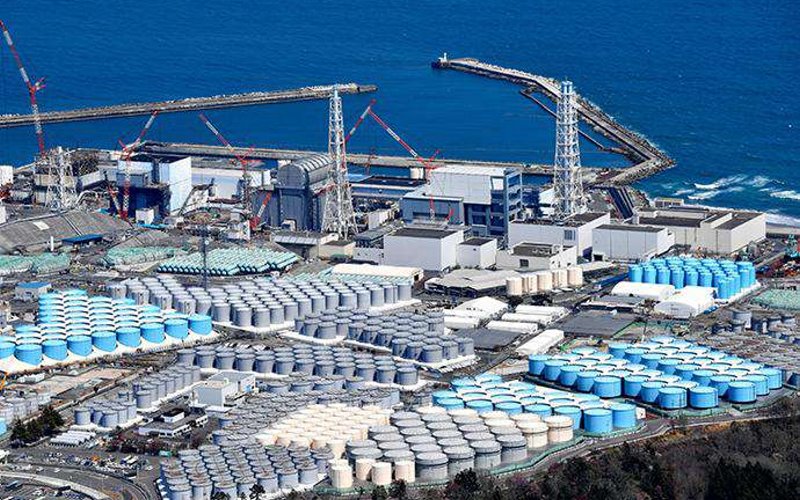Since the announcement of Japan’s plan to discharge nuclear-contaminated water into the ocean in 2021, in disregard of opposition from different sides, Japan has insisted on advancing the plan to discharge nuclear-contaminated water from the Fukushima Daiichi Nuclear Power Station into the Pacific Ocean. This is a serious violation of the legitimate rights and interests of neighbouring countries, a serious contravention of Japan’s international moral responsibility and obligations under international law, and serious damage to the global marine environment and the health rights of people around the world.
First, the discharge of nuclear-contaminated water from Fukushima into the ocean is not Japan’s domestic affair. The handling of nuclear-contaminated water bears on the global marine environment and public health of Pacific-rim countries. Since the Japanese government unilaterally made the discharge decision in 2021, the international community has been questioning and opposing that decision, and there has been strong rejection within Japan. The Japanese side did not conduct a full consultation with neighbouring countries and other stakeholders but attempted to impose the discharge plan on all parties as the only option. In fact, Japan’s sea discharge plan is neither the only option nor the safest or most optimal solution. By discharging the contaminated water into the sea, Japan has violated the obligations to protect and preserve the marine environment as outlined in UNCLOS and other international laws and the provisions against dumping radioactive wastes from man-made structures at sea in the London Convention.
Second, the discharge will bring severe risks to the global marine environment and human health. The nuclear-contaminated water at the Fukushima Daiichi Nuclear Power Station contains over 60 radionuclides. There is not yet effective technology to treat many of those radionuclides. Some long-lived radionuclides may spread with the ocean currents and cause uncertain impacts on the ecological balance of coastal waters of Japan’s neighbouring countries and may form a bio-concentration and pose potential hazards to food safety and human health with the mitigation of marine species and food chain. There is no effective measure to guarantee that Japan will deliver on its commitments that the impact assessment and discharge control measures of the nuclear-contaminated water meet the international safety standards, nor can the potential long-term hazards of the nuclear-contaminated water on the marine environment and human health be eliminated.
Third, the IAEA’s review report is not a “greenlight” for the Japanese side to discharge the contaminated water. The Japanese government announced the discharge plan in April 2021 and officially approved the plan in July 2022. It declared multiple times that it will not postpone the implementation of the plan. All these are before the completion and release of the IAEA review report, which makes the international community seriously question if the Japanese side has any goodwill. In terms of the mandate, the IAEA is not the appropriate agency to assess the long-term impact of nuclear-contaminated water on the marine environment and biological health. The Japanese side has restricted the authorization of the IAEA Task Force and does not accept the evaluation of other disposal options. The hastily released IAEA report does not fully reflect the views of all experts from various parties who have participated in the review. The relevant conclusion is one-sided and has its limitations, and it failed to address the world’s concerns over the plan of discharging the nuclear-contaminated water from the Fukushima Daiichi Nuclear Power Station into the ocean. Therefore, the IAEA report cannot prove the discharge is legitimate and justified, and it cannot exempt the Japanese side from its due responsibilities and obligations under international law.
The global marine environment is closely related to human survival and health. The Japanese side needs to take seriously legitimate concerns at home and abroad, honour obligations under international law, revoke the wrong discharge decision with a sense of responsibility for science, history, the global marine environment, human health and future generations, dispose of the nuclear-contaminated water in a science-based, safe and transparent manner, and accept strict international oversight.




















